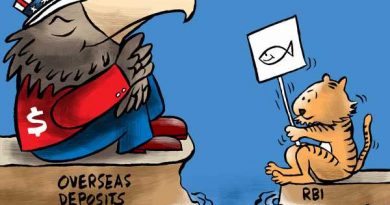S&P, Nasdaq rebound as strong earnings outweigh inflation fears
NEW YORK (Reuters) – The S&P 500 and Nasdaq remained positive into early afternoon trading on a topsy-turvy Thursday on Wall Street, with investors taking cues from upbeat retail and technology earnings despite hawkish inflation comments from a Federal Reserve policymaker.
By contrast, the Dow continued to play the laggard, threatening to wipe out November gains as it headed for its third decline this week. Cisco Systems Inc weighed the heaviest on the benchmark.
Inflation remains front and center for investors, and stock markets initially slipped after New York Federal Reserve Bank President John Williams said inflation is becoming more broad-based and that expectations for future price increases are rising.
“Investors are worried that the Fed is behind the curve, that they’ll have to say that (inflation) is no longer transitory,” said Sam Stovall, chief investment strategist of CFRA Research in New York.
Both the S&P and Nasdaq had rebounded by late morning though, with the latter supported by Nvidia. The chipmaker jumped to a record high after beating quarterly estimates and forecasting strong fourth-quarter revenue, before giving up some of its gains. It was last up 7.9%.
The performance helped the Philadelphia semiconductor index hit a fresh record high, before it too eased a touch to advance 1.2%.
The S&P consumer discretionary sector led gains among its peers, rising 1% as positive retail earnings from Macy’s and Kohl’s joined upbeat reports from Walmart Inc and Target Corp earlier this week.
Macy’s Inc surged 20.8% after it raised its annual earnings guidance and flagged plans for a potential spinoff of its ecommerce division.
Peer Kohl’s Corp rose 8% after raising its forecast.
The S&P 500 retailing index has broken its intraday record every session this week, as investors viewed the earnings as a signal of robust consumer demand that has persevered through rising inflation, and that retailers were set for a strong holiday season.
“The consumer is stronger than expected; it’s good news for the country as a whole. A stronger consumer is a reflection of a strong economic bounce,” said Mike Zigmont, head of research and trading at Harvest Volatility Management in New York.
Still, concerns over further increases in price pressure, along with uncertainty over the Fed’s plans for tightening have kept Wall Street muted this week.
Investors also hoped for more fiscal spending, after Speaker Nancy Pelosi said the House of Representatives could vote on President Joe Biden’s $1.75 trillion “Build Back Better” legislation by as soon as Thursday.
The Dow Jones lagged its peers on steep losses in network gear maker Cisco, which tumbled 7.2% after it forecast current-quarter revenue below expectations due to supply chain shortages and delays.
Visa Inc fell 0.7%, declining for a second day and heading for its worst finish since February after news that Amazon.com Inc may pare back its relationship with the payments company.
By 1:49 p.m. ET, the Dow Jones Industrial Average fell 30.94 points, or 0.09%, to 35,900.11, the S&P 500 gained 13.98 points, or 0.30%, to 4,702.65 and the Nasdaq Composite added 37.27 points, or 0.23%, to 15,958.84.
Among other stocks, Boeing Co rose 0.3% after Virgin Australia said it would add seven more 737 NG planes to its fleet, and as J.P. Morgan upgraded the planemaker’s stock to “overweight” from “neutral”.
Source: Read Full Article


